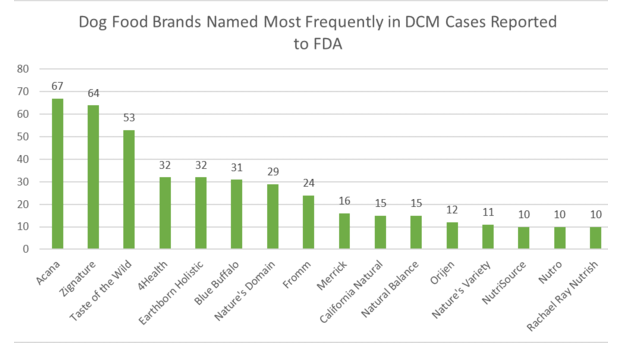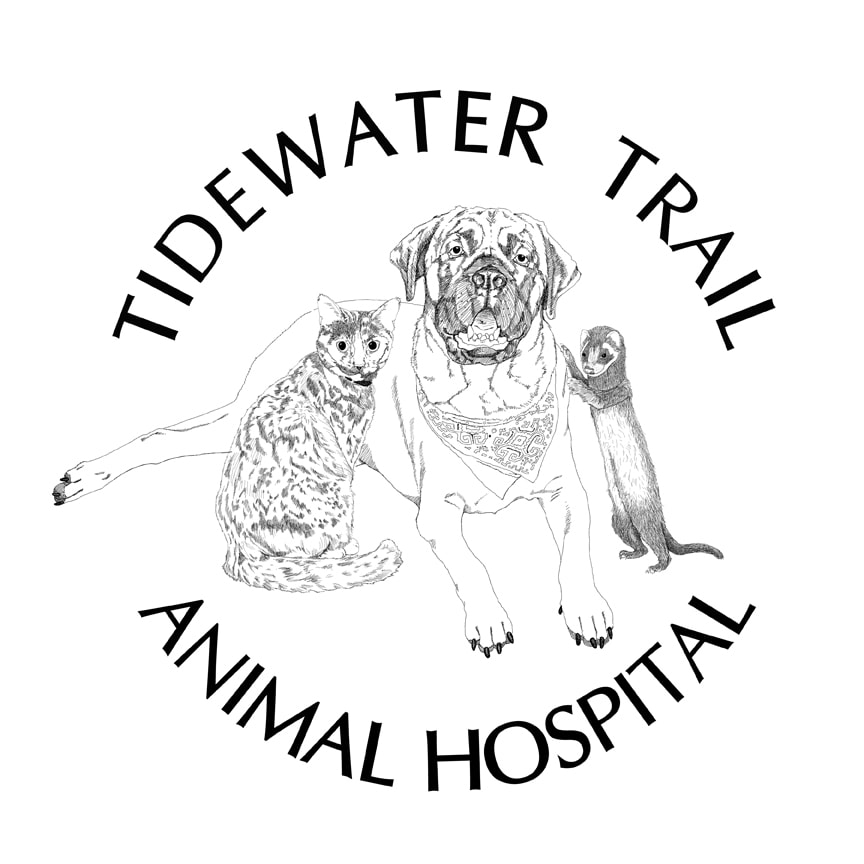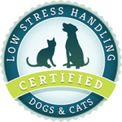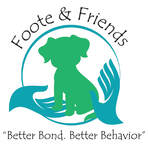|
The other day, a client came into our hospital after visiting a local boutique pet store with questions about what she should feed her dog. She had visited the store to find some pet food and had been told by a cashier to disregard the advice she had gotten from us. She said, “Veterinarians don’t know anything about nutrition. They only get a few hours of it during their entire education.” (Said the cashier with a degree in what?). She then went on to brag that their pet store was the only one in the area that has a “certified veterinary nutritionist,” meaning they took an 8 hour on-line course from NAVTA (National Association of Veterinary Technicians). This is NOT the same thing as a board-certified veterinary nutritionist. Normally, I would let something like this ride. I have, MANY times, but I am feeling a little touchy lately, and this whole issue with BEG (Boutique, Exotic ingredient, Grain-free) diets and cardiomyopathy has increased the stakes exponentially.
Sadly, this cashier’s opinion about what veterinarians do and do not know about nutrition is commonly, though quite erroneously, held. I believe this opinion gets repeated for several reasons. People want a recommendation on what food they should feed their dogs. Typically, veterinarians will recommend a brand developed by (guess who) veterinary nutritionists. For some reason, this is difficult for the companies whose food is not developed by veterinary nutritionists to swallow (pardon the pun). Additionally, people are typically responsible for feeding themselves. Few people (unless you have a serious medical condition), rely on a human nutritionist to develop and feed them a nutritionally balanced diet. So, people tend to feel that feeding their pets a balanced diet is just as easy as feeding themselves a balanced diet. But truly, how many people eat a nutritionally complete, balanced diet. Finally, media sensationalism and the “back to nature movement” propagate pet foods that appeal to the consumer and reject scientific research, development and data. Personally, I am not a boarded veterinary nutritionist. I did not finish my four years in veterinary school and go on to dedicate an additional four years of veterinary nutrition education. Also, I did not study and pass a grueling test on the advanced nutritional needs of five plus different species. I do not feel guilty recommending a food developed by people who are that dedicated to nutrition. That is not to say that I do not have an education in nutrition. Perhaps I only had a single, semester long class in vet school solely dedicated to nutrition. This is, the class was two hours a day, five days a week for three months. However, I also only had a single class solely dedicated to cardiology, and one class dedicated solely to dermatology, and one class dedicated to immunology. Does that mean that if someone takes an on-line course in cardiology that makes them just as qualified as me to recognize, diagnose and treat heart disease in their pet? My point is that not only was nutrition an aspect in all our classes, but it is something that we deal with every single day in veterinary practice, just like cardiology. I have over 20 years of experience in practice. Do you think I am more knowledgeable about nutrition than some cashier who’s been working in a pet shop for 2 or 3 months??? Pet food companies frequently accuse veterinarians of promoting these foods for profit, so we can make money. This is laughable since we sell very little pet food through our hospital. Truly, it is the pet food manufacturers and pet stores who tend to make money selling their foods. I think the term for that is transference. People are responsible for feeding themselves and their families. On the surface, this works out well. Whether you are using the four food groups or colors or sections on your plate, you should include protein, vegetables, starch and dairy in your diet. Do you eat your veggies every day? How many people truly eat a balanced diet? Obesity is an epidemic in the world today. Nutritional advice for people comes from all different kinds of sources. Do you think keto is balanced and healthy? It’s not. How about Adkins? Nope. Food trends for us tend to come from popular culture not from human nutritionists. Now, what is the difference in our nutritional needs and that of a six pound Chihuahua or a 160 pound mastiff? Gluten-free became a huge phenomenon with people when a study was published by Peter Gibson, showing that gluten proteins cause stress on the digestive system, even of healthy people. Later, this research was debunked by the same researcher through further studies. (“Scientist who discovered gluten allergy clarifies his stance on what has become a fad diet,” Washington Post, May, 26, 2014). Now, if you go to Petsmart, about 90% of pet foods are grain-free. In reality, the meat source of a pet food is more likely to be the cause of an allergic reaction, NOT the grain (and it can be any meat). Additionally, food allergies, only make up about 1% of allergies in dogs and cats. However, the same way gluten-free has erroneously become associated with being healthier in people, grain-free has erroneously become associated with being healthier in dogs and cats. Pet food manufacturers also like to add ingredients like chicory, alfalfa, blueberries, apples and pomegranate to make their foods more appealing to consumers. These ingredients sound great, but they are not necessary in a balanced diet. What nutritional value do these ingredients add? What benefits do they give your pet? Also, the quantities of those ingredients so small they are truly negligible. Finally, there are many proponents of raw diets. It is amazing to me that raw diets are still advocated by people. (https://www.fda.gov/animal-veterinary/animal-health-literacy/get-facts-raw-pet-food-diets-can-be-dangerous-you-and-your-pet) Dogs and cats are just as susceptible to food poisoning as humans. Yes, people eat sushi, but as a rule, people don’t eat raw foods to be healthy. In fact, humans started living longer when we learned to cook our food. Dogs and cats are no different. In the wild, wolves and wild cats don’t have a choice about having their food cooked. However, in the wild, the average life span for wild cats and wolves is only about 6 to 7 years. Dogs have been domesticated for about 15,000 years. Furthermore, the lifestyle of pet dogs and cats bears almost no resemblance to the lifestyle of wild animals. Wolves in the wild go for days without a significant meal, when they finally have a kill, they gorge on it for several days. They may bury part of their food to save it for later. Do we really want to feed our dogs like their wild ancestors? In 2017, veterinary cardiologists noticed an increased incidence of dilated cardiomyopathy (DCM) in dogs, particularly dogs of atypical breeds. These cardiologists looked into these cases, performed studies and found that a significant number of these dogs were being fed “BEG” diets. BEG stands for boutique, exotic ingredient and grain free diets. Some dogs, particularly golden retrievers were found to have a deficiency in taurine, an amino acid that has been linked to cardiomyopathy for years. These dogs responded to supplementation with taurine. However, other breeds were not deficient and did not improve with taurine supplementation. However, when these dogs were switched to a different diet, they did improve and in many cases, their heart disease resolved. Manufacturers of these BEG diets have responded by adding taurine to their diets and emphasizing that, as if that were the problem, but it is not. Additionally, they have made statements to the press stating that there is nothing wrong with the implicated diets. However, I am not aware of any of these manufacturers trying to work with boarded veterinary nutritionists to understand what is contributing to cardiomyopathy and how to reformulate their diets so that they are no longer a problem. (For more information on FDA recommendations on this issue, see https://www.fda.gov/animal-veterinary/cvm-updates/fda-provides-update-investigation-potential-connection-between-certain-diets-and-cases-canine-heart) People love their pets. They want the best for their pets, and if feeding them special diets with exotic ingredients and blueberries makes them feel like they are doing the best for their pets, I am fine with that as long as it doesn’t cause a problem. For years, pet stores and pet food commercials have pushed such diets as “heathy” and “natural.” Now, these diets are causing a problems with your pets’ health. Now, I am counseling against feeding such diets. I do not appreciate my profession being maligned as ignorant and greedy because we have made some pet stores and pet food manufacturers uncomfortable by making recommendations based on scientific studies for the health of our patients. In the end, it really depends on who you trust with your pets’ health. Should you trust a generic employee who may have only worked at the pet store for a few months, who has little to no nutrition education and derives a large amount of their income from selling pet foods? Should you trust a pet food manufacturer, with no boarded veterinary nutritionist on staff, who tells you that your maltese is the same as a wolf, who spends millions of dollars each year on advertising, and whose income depends 100% on your buying their pet food? You can trust your veterinarian who has gone to school for 8+ years, who has cared for all your pets’ health needs, and who derives very little income from the sale of pet food.
35 Comments
|
Dr. Andi
Mostly behavior with a little life mixed in! Archives
March 2023
Categories |
Contact Us:
|
Hospital hours:
Monday: 6:30am - 6:30pm
Tuesday: 7am - 7pm Wednesday: 6:30am - 6:30pm Thursday: 7am - 7pm Friday: 6:30am - 6pm Saturday: 8am - 1pm Closed Sunday |
|
Site powered by Weebly. Managed by IDEXX Laboratories
|

 RSS Feed
RSS Feed





